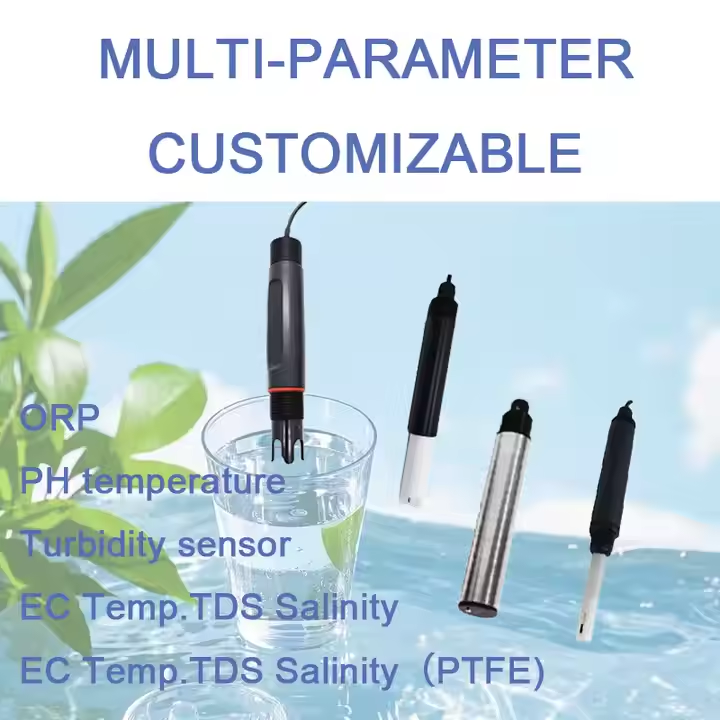Introduction
Vietnam, a country with an agriculture-centric economy, heavily relies on its rich natural resources, particularly water. However, with the increasing impacts of climate change, including unpredictable rainfall patterns, rising temperatures, and severe droughts, the quality of water available for irrigation has become a critical concern. Water quality is vital for sustainable agricultural productivity, affecting crop yield and health. To address this challenge, the integration of advanced water quality sensors into agricultural practices has emerged as a promising solution.
Background
Agriculture in Vietnam is predominantly based on rice cultivation, along with various other crops such as coffee, rubber, and fruit. Many farmers rely on rivers, lakes, and groundwater for irrigation. However, various pollutants—including pesticides, fertilizers, and waste from both domestic and industrial sources—threaten the quality of these water sources, negatively impacting crop growth and, ultimately, farmers’ livelihoods. As climate variability increases the likelihood of extreme weather events, maintaining sufficient and clean water sources is more crucial than ever.
Water Quality Sensor Solutions
To tackle the challenges posed by water quality degradation, several innovative agricultural projects in Vietnam have adopted water quality sensors. These sensors monitor parameters such as pH, turbidity, electrical conductivity, and dissolved oxygen levels in real-time. The key characteristics of these water quality sensors include:
-
Real-Time Monitoring: Sensors deliver continuous data on water quality, enabling farmers to make timely decisions about irrigation and crop management.
-
Remote Data Access: Many systems come with wireless connectivity, allowing farmers to access data on their smartphones or computers from anywhere. This feature is especially beneficial for farmers who manage multiple irrigation sources.
-
User-Friendly Interface: The data collected is presented in an easy-to-understand format, making it accessible for farmers with varying levels of technical expertise.
-
Alerts and Notifications: The sensors are equipped with alert systems that notify users of any water quality issues, prompting immediate corrective actions.
Case Analysis
In a pilot project in the Mekong Delta region, a significant number of local farmers adopted water quality sensors to monitor irrigation water used for their rice fields. The sensors were placed strategically throughout irrigation systems to provide comprehensive data.
-
Improved Crop Yield: With real-time data indicating when water quality fell below optimal levels, farmers could modify their water usage or treat water accordingly. This proactive approach resulted in a 20-30% increase in crop yield over a growing season as the plants received only the best quality water.
-
Reduction in Chemical Use: Regular monitoring of water quality helped farmers identify the presence of chemical pollutants in their irrigation sources. Consequently, they reduced the application of fertilizers and pesticides, leading to more sustainable farming practices and lower production costs.
-
Enhanced Resource Management: The data provided by the sensors enabled farmers to better manage their water consumption, ensuring they utilized their resources efficiently even during dry spells.
User Feedback
Farmers involved in the pilot project reported overwhelming satisfaction with the water quality sensors. Many noted that before using the sensors, they relied on visual inspections of water quality, which were often inadequate. The sensors provided reliable data, allowing them to make informed decisions and reducing the risks associated with poor water quality.
Moreover, local agricultural extension services began incorporating sensor data into their advisory services, providing farmers with tailored recommendations based on real-time water quality conditions.
Conclusion
The application of water quality sensors in agriculture in Vietnam demonstrates a successful integration of technology to address the challenges posed by climate change and water pollution. By enabling real-time monitoring and facilitating informed decision-making, these sensors significantly enhance agricultural productivity and sustainability. As climate impacts become more pronounced, the continued adoption and advancement of water quality monitoring technology will be vital in ensuring food security and the resilience of Vietnam’s agricultural sector. Through initiatives like these, Vietnam can build a more sustainable agricultural system that thrives amidst climatic uncertainties.
We can also provide a variety of solutions for
1. Handheld meter for multi-parameter water quality
2. Floating Buoy system for multi-parameter water quality
3. Automatic cleaning brush for multi-parameter water sensor
4. Complete set of servers and software wireless module, supports RS485 GPRS /4g/WIFI/LORA/LORAWAN
For Water quality sensor information,
please contact Honde Technology Co., LTD.
Email: info@hondetech.com
Company website: www.hondetechco.com
Tel: +86-15210548582
Post time: Jul-01-2025


